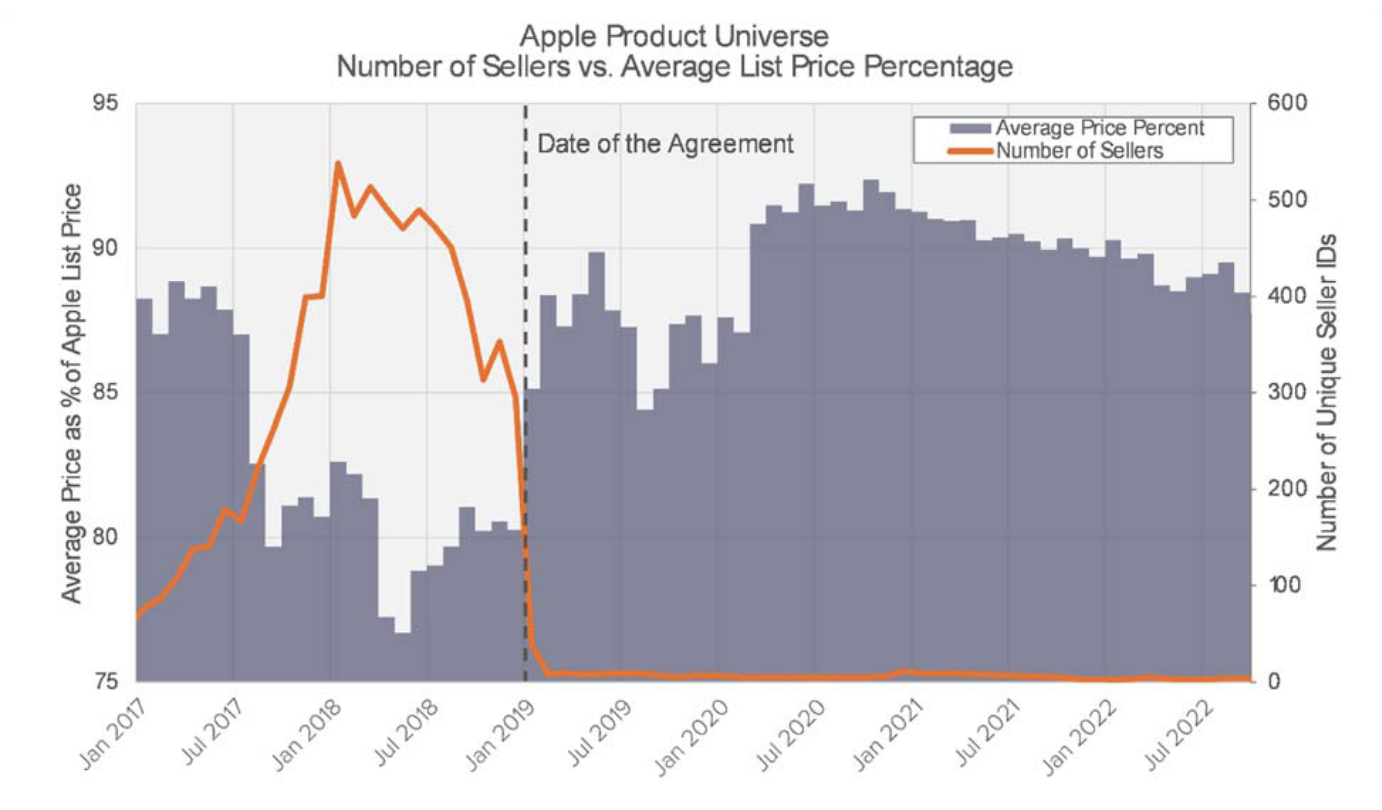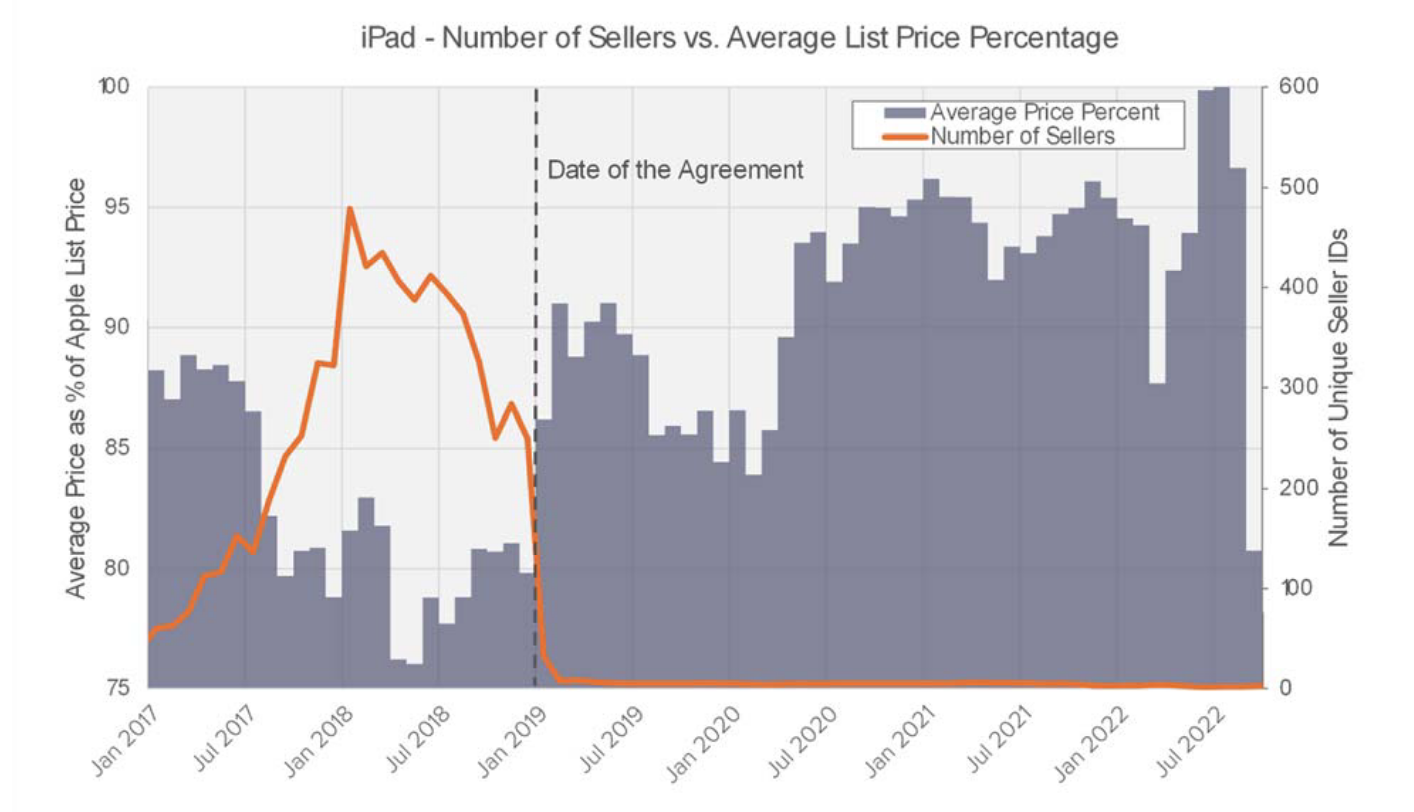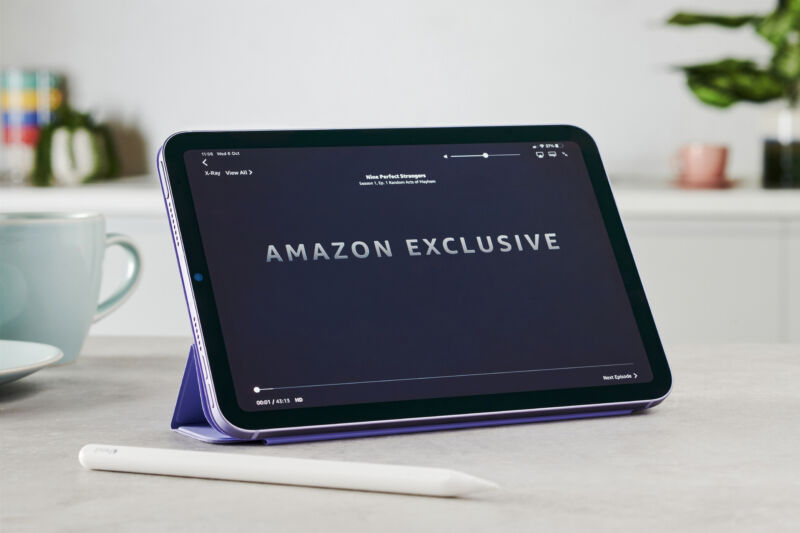In early 2018, there were more than 600 companies you could buy Apple products from on Amazon's marketplace, including independent refurbishers, usually at lower prices than Apple's own. By July 2019, there were only seven, and a class-action lawsuit says that was the result of an unlawful agreement between the tech giants.
The lawsuit (PDF) was filed Wednesday in federal court in Seattle by law firm Hagens Berman on behalf of Steven Floyd. Floyd is a Pennsylvania man who bought an iPad on Amazon for $320 in early 2021 and was denied "a lower price which would have been the case in a normal competitive market," the suit alleges.
Hagens Berman should be a familiar name to Apple's counsel and close watchers of the company's legal history. The firm sued Apple over scratched iPod nano cases in 2005 and ebook price-fixing in 2011 and brokered a settlement for smaller iOS developers in the App Store in 2021. Hagens Berman was also involved in a complicated lawsuit involving iOS touchscreen patents that involved Apple accusing the firm of secretly leaning on an "extra attorney."
The suit largely concerns Apple and Amazon's agreement in November 2018, one widely reported, that allowed Amazon to directly sell Apple products through its marketplace, while also requiring any other firm to get Apple's permission to sell its products on the site after January 2019. This had the effect of killing a major outlet for refurbished Apple goods, which tend to hold their value much better in used and refurbished form than most other electronics.
It was also, the suit claims, "an unlawful horizontal agreement between Apple and Amazon to eliminate or at least severely reduce the competitive threat posed by third-party merchants." That agreement is "naked restraint" and unlawful under the Sherman Act, the suit claims.
The benefits to this collusion, according to the suit, were that Amazon received "consistent supplies at a discount of up to 10%" if it kept unauthorized resellers off its store and instantly became the leading vendor of Apple products on its site. Apple, meanwhile, eliminated the "active price competition" that was undercutting its own retail prices, the suit alleges. Prior to the agreement, discounted prices for iPhones and iPads from third-party vendors on Amazon could be 20 percent or more, an attorney for Hagens Berman stated in a blog post.

Amazon's ability to "win" the "Buy Box"—to be the default vendor for Apple products when a customer buys or adds a product to their cart—shot up after it agreed to let Apple choose authorized resellers, according to a class action lawsuit.

The class-action lawsuit claims that Apple's goal in restricting third-party resale of its products was to keep prices high. This graph purports to show the success of what the lawsuit claims were unlawful actions.

Key to the lawsuit's claims are that reducing the number of sellers on Amazon allowed Apple to eliminate cheaper prices for its products, sometimes discounted by as much as 20 percent.
This same agreement has previously drawn fines from Italy's competition authority for restricting the firms that can sell Beats headphones in Amazon's Italian store.
Neither Apple nor Amazon has addressed the lawsuit's claims as of this writing. Hagens Berman is seeking people who bought an iPhone or iPad from Amazon through the standard "Buy Box" to enroll in its class. Damages were not specified in the suit, though it seeks a jury trial and numerous forms of injunctive relief under antitrust statutes.



3175x175(CURRENT).thumb.jpg.b05acc060982b36f5891ba728e6d953c.jpg)

Recommended Comments
There are no comments to display.
Join the conversation
You can post now and register later. If you have an account, sign in now to post with your account.
Note: Your post will require moderator approval before it will be visible.